The Wordsmiths and the Warguild (1987)

You may have noticed Paperback Picnic has been on an unannounced hiatus for a few months. The reason will be obvious to anyone who knows me personally—my daughter was born. Obviously this has rearranged my life a fair bit, and I don't expect to be putting out this allegedly monthly newsletter on an actual monthly basis for the foreseeable future. But in the meantime we are having plenty of fun. Some people play their babies Mozart so they will grow up to be geniuses. I've been reading mine Titus Groan and Moby-Dick so she will grow up a literary snob like me. (That's a joke. Probably...)
What small hours I've had to devote to writing have been focused on my fiction projects, including polishing off one novel, starting a new novel, and editing a novella that I can hopefully share with you all soon. (I actually sound kind of productive when I put it like that. But really, I haven’t been writing that much.)
Anyway, on to this issue’s review, which is Hugh Cook's The Wordsmiths and the Warguild (1987).
This is the second Cook novel I've read, the sequel (or rather sidequel) to the wonderful The Wizards and the Warriors. Book two in the series is shorter, lighter, more fun but less weighty than the first.Wizards was a sprawling epic full of powerful characters whose choices were shaping history.Wordsmiths is about one petty little man trying to survive in the shadow of those choices.
I call this a sidequel because the two novels cover roughly the same time period. Like how Rosencrantz and Guildenstern are Dead plays out in between the scenes of Hamlet, the events of this novel take place in the margins of book one. Several key moments from Wizards are shown again, this time from the viewpoint of an insignificant soldier or a displaced refugee.
The outside-text reason for this is that Hugh Cook never intended to write Wordsmiths in the first place. He apparently wanted The Women and the Warlords to be the second book of the series, but his publisher asked him to write another book in between that would "bridge the gap". It seems like Cook took this task only half-seriously, because Wordsmiths doesn’t really have much of a connection to the events of Women. So, Cook really just used the publisher's request as an excuse to write more of whatever he felt like.
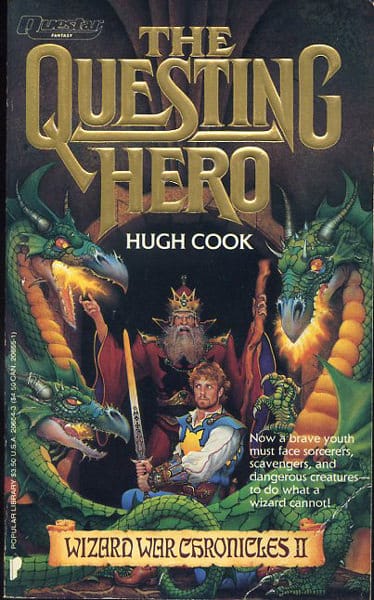
Our protagonist this time is Togura Poulaan, a teenage vagabond who has convinced several important people that he is a capital-H Hero, and is sometimes half-convinced of this himself.
In the opening chapters, Togura's goal is simply to lose his virginity to his girlfriend Day Suet. Before he can accomplish the deed, however, Day is accidentally sucked into a magic portal, the odex. Nothing can be retrieved from the odex without another artifact called the index, a kind of universal key. Urged on by the Wordsmiths (a group of insular scholars who study the odex) Togura reluctantly sets out on a rambling quest to find the index and finally get his rocks off.
Unlike the traditional teenage fantasy hero (but more like an actual teenager) Togura is extremely ambivalent about this quest. Several times he gives up altogether, declares it too hard, or gets distracted by other things. "As for this business of being a hero? Well, there would be plenty of time to make a decision on that... [first] he would undertake a far more urgent project: he would find one of Lorford's cheaper whores and finally cure himself of his virginity." At the same time, he stays open to the idea that he might really be the hero others believe him to be.
In the traditional “Hero’s Journey” narrative, there is always a Call to Adventure, followed by the Refusal of the Call. This is a moment early in the story, where the hero tries to avoid the adventure laid out for them. It's meant to be a point of initial reluctance which is overcome at the end of the first act. But for Togura, the Refusal of the Call goes on through the whole book. He accepts the Call and then rejects it again later; he flirts with the Call, making use of it when it is socially or emotionally useful to him.
Especially in light of the third book (which I'll be reviewing next) it's obvious that masculinity is a central theme of the series. And here it's teenage masculinity in particular. Togura's motivation is deeply tied up in his feelings about manhood and sexual prowess. Just before Day is lost inside the odex, she and Togura make an attempt at having sex, but Togura suffers a shameful bout of premature ejaculation. His desire to re-do this humiliating scene and make it right is really what drives him, more than any intrinsic feelings towards Day herself.
Essentially, Cook has made a satire of the teenage-hero archetype by keeping the same storyline but putting an actual, realistic teenage boy in the lead role, with all the awkwardness and psychological hangups that entails.
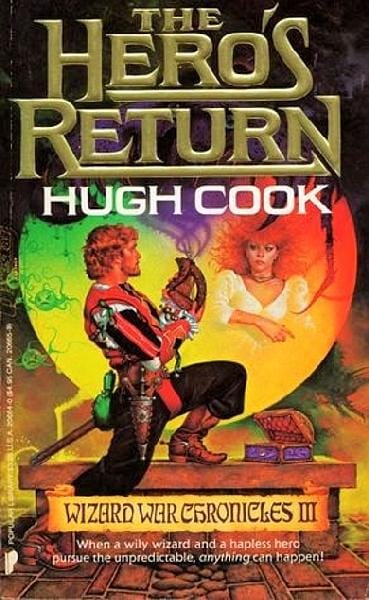
About halfway through the book, there’s a scene where Togura has once again given up on his quest and been adopted into an isolated village. It's squalid, miserable, he can't understand the local language, and yet he finds genuine affection with a young woman, Namaji, who treats his wounds.
After saving the village from invaders Togura is given the chance to settle down there and choose any unmarried woman he likes to be his bride. He is overjoyed to choose Namaji, until he discovers to his consternation that she is trans:
At sunset, all the men escorted Togura and Namaji to a hut which had been made ready for them. He found himself trembling as he closed the door on the outside world.
‘Namaji.’
‘Togura.’
They found each other in the darkness. Togura, his hands shaking, laid rough hands on Namaji. In his haste, he stripped her more swiftly than he should have; he heard a little rip as fabric gave. Urgently, he grappled with her, sliding a hand straight to her privacy, and finding—
Togura screamed.
'No no no no!' he shouted.
Outside the hut, there was a chorus of cruel, knowing laughter. The men were out there. They knew! And what they knew was that his 'she' was a 'he'. Namaji touched Togura with small, gentle, seducing hands. He slapped them away. Namaji wept.
'Togura,' said Namaji, pleading.
'No,' said Togura. ‘It's no good. I don't want a make-believe woman. I want the real thing.'
He desperately wanted, needed, lusted for the real thing, so he could rut it under, taking what other men wanted, thus proving his strength, sagacity, wisdom, superiority and manhood. His ego lusted for status as much as his body lusted for flesh.
I have mixed feelings about this scene. On the one hand, it's somewhat playing into the transphobic trope of "hetero man is tricked into sex by trans woman". But the scene is really about the tragedy of how rigid heterosexuality can close off the possibility of genuine connection. Togura really does care for Namaji, and has a chance at love and happiness with her (which is incredibly rare given the general squalor and violence of the setting). He rejects this chance not because of any inherent dislike for Namaji or her body, but because he fears how it will affect his social standing among the other men.

Cook's ability to dig deep into his characters is what sets this novel apart. There is a deep humanism to his writing; a sense that even the most common soldier or shit-stained peasant has their own life history, quirks and desires, of which we see only a small part as they move briefly across the page.
There's one glaring exception to this rule, and that's the way Cook describes fat people—in particular, the Princess Slerma, who briefly becomes Togura’s fiancee. Cook’s descriptions of Slerma are dripping with disgust. She is “a vast and slovenly giantess”, with “seasick folds of flesh”, who eats from a “trough”, and must be kept away from un-reinforced floorboards to stop her from crashing through into the floor below.
These passages are really quite unpleasant to read. And it isn't just because they’re mean-spirited and pointless. The problem goes deeper than that.
Good satire needs to get inside its target. It needs to mock not just the surface, but the deep parts: the self-delusions and neuroses, the absurd thought patterns we don't want anyone else to know are running through our heads. And this shows clearly in the best of Cook's writing. When Togura obsesses over his virginity even while he's dying of thirst in the woods, we find it funny because even his worst qualities feel like the qualities of a real person. Perhaps we even see a little of ourselves in him.
But Slerma has no interior space. Cook doesn't know anything about Slerma's thoughts or fears; all he can think about is how disgusting her body is. As a result, his writing in these scenes is not just cruel, it's boring. The only joke Cook can deploy is that she's fat, fat, fat. The phrase “thick, slurred voice” appears twice in as many pages. “Vast”, “huge” and “gross” are all used repetitively. And Slerma’s motivations don’t make any sense either—she rejects Togura at the end of their first encounter, but shows up at the end of the book demanding he marry her again.
I think this is the hidden tragedy of a good writer with bigoted attitudes. Yes, it's bad that this book is part of a culture of fatphobia (though obviously, the impact of an out-of-print fantasy novel is negligible). But also: Cook's fatphobia turned him from a clever, witty writer into an annoying, unfunny one. And that's a crying shame.
Still, those scenes only add up to a handful of pages in an otherwise highly entertaining book. So with that caveat, I give The Wordsmiths and the Warguild a hearty recommendation.
Next time I'll look at the third novel in the series, The Women and the Warlords. Expect that review in a week or so… or a couple of months. Who knows!
Availability: Like the previous one, this is not available in ebook format (why??) but it looks like you can get a used copy for a reasonable price online.
Header cover art by Steve Crisp.

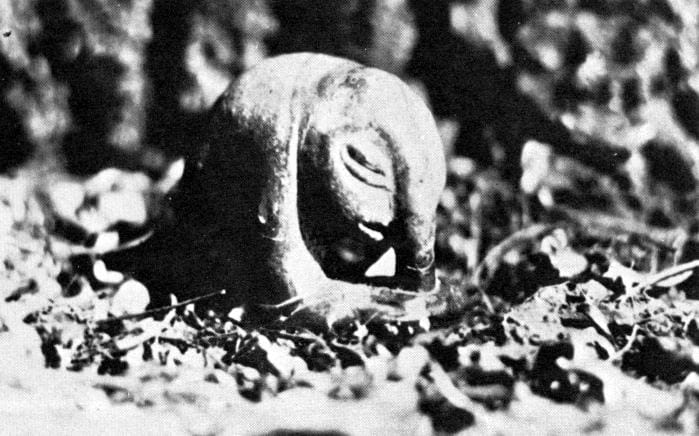
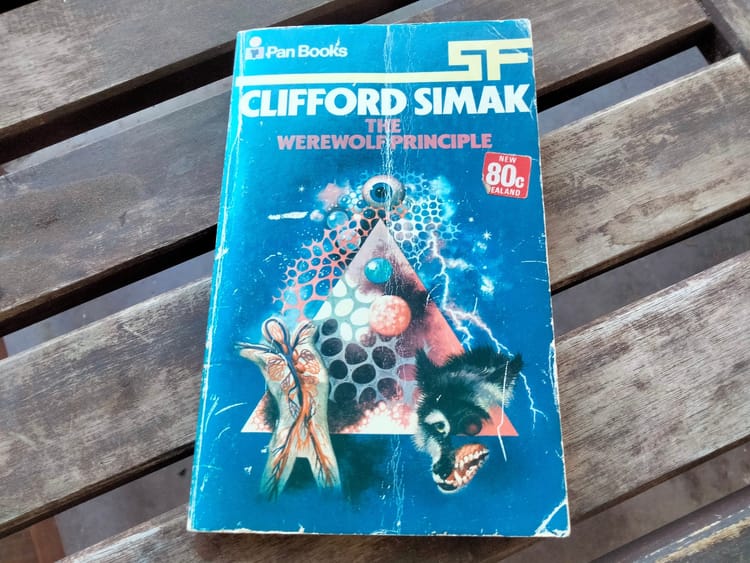

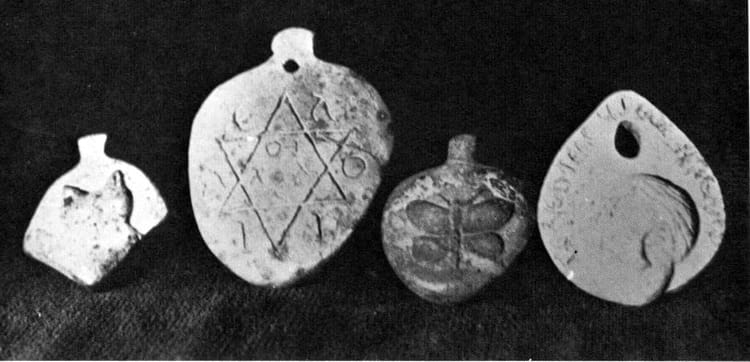
Member discussion